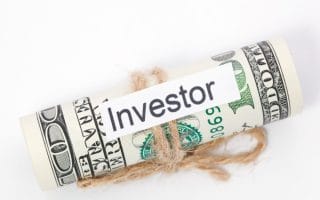
As an accredited investor, it’s possible to access investment opportunities that aren’t available to individuals who aren’t as well capitalized. Generally, the options are considered a higher risk, but they can also provide bigger rewards if they turn out well. So, for those of you who meet the required financial qualifications, here is a list of accredited investor opportunities.
Understanding Accredited Investor Status
Before we delve into the different types of accredited investor opportunities, it’s important to understand what an accredited investor is and how one can become accredited.
Definition of an Accredited Investor
An accredited investor is an individual or entity that meets specific requirements under the securities laws and regulations.
According to the SEC, an individual is considered an accredited investor if they have a net worth of at least $1 million (excluding their primary residence) or annual income of at least $200,000 (or $300,000 for married couples) for the past two years with the expectation of the same income for the current year (SEC).
In addition, investment professionals can also quality as accredited investors. Per SEC regulations, investment professionals with a series 7 license, an adviser representative license (Series 65), or a private securities offerings license (Series 82). Company officers, directors or partners in a company selling securities can also qualify. Investors in private funds or employees of private funds and clients and employees of family offices also qualify (SEC).
Finally, an entity, such as a corporation, partnership, or trust, can also be considered accredited if it has institutional investments or a net worth of at least $5 million.
Requirements for Becoming an Accredited Investor
There is no common “process” that exists for someone to become an accredited investor. No agency of government or independent body approves credentials or offers certifications. Instead, the companies that issue securities determine a potential investor’s status by conducting diligence before accepting money from investors.
List of Accredited Investor Opportunities – By Type
There are various types of accredited investor opportunities available, each with its unique characteristics and potential risks and rewards. Accredited investors are individuals with a net worth of at least $1 million or an annual income of $200,000 or more.
Private Equity Investments
Private equity refers to investments in companies that are not publicly traded on stock exchanges. Private equity investments can offer higher returns than public equity investments but also involve greater risks.
Private equity investors typically invest in small to medium-sized businesses that are looking to grow or expand. These investors often take an active role in managing the company and may have a say in the company’s operations and strategic decisions.
However, private equity investments often have long hold periods, which means the investor’s money is tied up for several years. Additionally, private equity investments can be illiquid, making it difficult to sell the investment before the hold period ends.
Here is a preliminary list of accredited investor opportunities in private equity.
Equity Bee Gives you access to start ups, 12% returns, $500 minimum.
Mainvest Mainvest lets you invest in small businesses. 10-25% returns, $100 minimums. Accredited and non-accredited.
Private equity investments can be a good option for investors who are willing to take on higher risks in exchange for potentially higher returns. However, investors should carefully consider the risks and rewards before investing.
Hedge Funds
A hedge fund is a type of investment fund that employs advanced strategies to generate higher returns than traditional investment options while mitigating risks. Hedge funds often invest in alternative assets such as derivatives, commodities, and currencies.
Hedge funds are known for their ability to generate high returns quickly, but they also carry a high level of risk. Hedge funds are typically only available to accredited investors and have high minimum investment requirements.
Investing in a hedge fund can be a good option for investors who are looking for higher returns and are willing to take on higher risks. However, investors should carefully consider the risks and rewards before investing in a hedge fund.
Venture Capital
Venture capital refers to investments in early-stage companies that have high growth potential. Venture capitalists provide growth capital to these companies in exchange for an equity stake in the business.
Venture capital investments have the potential for high returns but also involve significant risks. Most venture capital investments fail, so investors must be willing to accept the risk of losing their entire investment.
Investing in venture capital can be a good option for investors who are looking for potentially high returns and are willing to take on higher risks. However, investors should carefully consider the risks and rewards before investing in venture capital.
Real Estate Crowdfunding
Real estate crowdfunding is a relatively new investment option that allows accredited investors to invest in real estate projects online. Real estate crowdfunding platforms allow investors to invest in a specific real estate project or portfolio of projects. Investors can pool their money with other investors to finance larger deals that would otherwise be difficult to finance alone.
Real estate crowdfunding investments typically have lower minimum investment requirements than other real estate investment options and offer the potential for higher returns. However, these investments also carry risks, including the risk of losing the entire investment if the project fails.
Here Are a list of real estate companies which are currently open to investments from accredited investors.
Ark7: This is a fractional ownership platform offers 5% returns, and 20% minimums. Accredited and non-accredited investors.
Yieldstreet: Art, VC, crypto, private credit, & others. 8-20% returns and $15,000 minimum buy in. Primarily accredited.
EquityMultiple is a private investing marketplace for commercial real estate. 17% return and $5,000. Accredited only.
CrowdStreet is a commercial real estate platform. 12-20% returns, $25,000 minimum, but varies. Accredited only.
RealtyMogul Realty mogul lets you invest in commercial real estate. 6-8% returns, $5,000 minimum. Primarily accredited.
Arrived Arrived lets you invest in rental homes and other residential properties. 8%-20% returns, $100 minimums. Accredited and non-accredited.
Investing in real estate crowdfunding can be a good option for investors who are looking for exposure to the real estate market with lower minimum investment requirements. However, investors should carefully consider the risks and rewards before investing.
Angel Investing
Angel investing refers to investments in early-stage companies that are not yet ready for venture capital funding. Angel investors provide capital to these companies in exchange for an equity stake in the business.
Angel investing offers investors the opportunity to invest in potentially high-growth companies at an early stage. However, these investments also have a high risk of failure, and it can be challenging to assess the potential of a startup company accurately.
Investing in angel investing can be a good option for investors who are looking for potentially high returns and are willing to take on higher risks. However, investors should carefully consider the risks and rewards before investing in angel investing.
Peer-to-Peer Lending
Some peer-to-peer (P2P) lending platforms only allow accredited investors to participate in funding loans for individuals or small businesses. In exchange for investing in a loan, the investor receives a return, typically based on the interest rate associated with the loan (minus platform fees or similar costs). Payments are usually issued monthly, suggesting the borrower makes their required payment.
Generally, this option has a higher return potential than some alternative investments. However, if the borrower defaults, it usually means a loss, so keep that in mind when choosing loans to fund.
Collectables & Others
Collectables are one entry in this list of accredited investor opportunities. This investment strategy involves purchasing items that are considered to have intrinsic value, such as artwork, antiques, or rare coins, with the expectation that their value will appreciate over time. What’s appealing about investing in collectables for accredited investors is the potential for high returns, as well as the opportunity to acquire items that have historical significance or artistic excellence.
MasterWorks. Masterworks is a platform that lets investors purchase fractional shares in fine art. Minimum $500. Accredited and non-accredited options
AcreTrader is a company that lets you invest in farmland. Returns are 3-5% with $10,000 minimums. Accredited only.
Vinovest This website lets you invest in wine. 12% returns $1,000Accredited and non-accredited
Evaluating Accredited Investor Opportunities
Although accredited investor opportunities offer the potential for high returns, they also involve significant risks, and investors must do their due diligence to evaluate the potential risks and rewards. As an accredited investor, it is crucial to understand the investment opportunities available to you and make informed decisions about where to invest your money.
There are several factors to consider when evaluating accredited investor opportunities. One of the most important factors is assessing the risk and return potential of each investment opportunity. Investors should evaluate the risks and potential returns of each investment opportunity and determine whether the potential returns justify the risks involved. It is essential to understand the investment timeline and how long your money will be tied up.
Assessing Risk and Return Potential
When assessing the risk and return potential of an investment opportunity, it is important to consider the investment’s track record, the management team, and the market conditions. A well-managed business with a strong management team in a larger market will do better than other types of investments.
Investors should also consider the level of risk associated with each investment opportunity. Investments with a higher risk profile may offer the potential for higher returns, but they also carry a higher risk of loss.
Diversification: Same As Retail, But With Greater Flexibility
Like with retail investors, diversification is typically viewed as essential for accredited investors. Accredited investors should spread their investments across multiple asset classes to mitigate risk and reduce the impact of any particular investment’s failure. Diversification can also help investors take advantage of different market conditions and investment opportunities.
Accredited investors are typically better able to negotiate investing terms to reduce their risks. Because accredited investors generally speak directly with issuers and usually have access to larger amounts of capital, they are better able to negotiate terms.
For example, in the case of private placements, issues may offer incentives to participate. These could include pricing discounted relative to the market. Some other incentives can be adding warrants, guaranteed dividend payments or adding collateral in exchange for bond investments. Warrants can be quite lucrative. The ability to speak directly to issuers and the capacity to bring larger amounts of money to
Investment in private placements also offers size diversification in a portfolio: issuing companies tend to be significantly smaller than companies whose stock is publicly traded (cite).
Due Diligence and Research
Investors should conduct extensive research into each investment opportunity and only invest in opportunities that they fully understand. This research should include reviewing the investment’s prospectus, financial statements, and other relevant documents. Investors should also seek advice from financial professionals, lawyers, and other experts when evaluating investment opportunities.
This is especially the case for accredited investors, as many of the opportunities that accredited investors may encounter are not SEC registered and require a high degree of scrutiny.
Understanding Fees and Expenses
Similar to advice given to retail investors, fee awareness is especially important for accredited investors due to the typically larger amounts involved.
Accredited investors should be aware of all the fees and expenses associated with each investment opportunity. These fees can significantly impact investment returns and should be considered when evaluating investment opportunities. Fees may include management fees, performance fees, or other expenses.
It is important to understand how these fees are calculated and how they will impact your investment returns over time.
Investors should also consider the tax implications of each investment opportunity and how taxes will impact their returns.
Legal and Regulatory Considerations
Investing in accredited investor opportunities involves complying with various state and federal securities laws and regulations.
Securities and Exchange Commission (SEC) Regulations
The SEC regulates many of the accredited investor opportunities available to investors. Investors must comply with SEC rules, including providing proper documentation to support their accredited investor status.
State Securities Laws
State securities laws often require additional compliance when investing in accredited investor opportunities. Investors must be aware of their state’s securities laws and comply with them to avoid legal and financial ramifications.
Tax Implications of Accredited Investor Opportunities
Investors should be aware of the tax implications of investing in accredited investor opportunities. Some investments may involve tax advantages, while others may have unfavorable tax implications.
Accessing Accredited Investor Opportunities
Accredited investors can access investment opportunities through various means, including online platforms, financial advisors, and networking opportunities.
Online Platforms and Marketplaces
Online platforms and marketplaces have made it easier for accredited investors to access a diverse range of investment opportunities. Accredited investors can browse investment opportunities and invest online quickly and easily.
Financial Advisors and Wealth Managers
Many financial advisors and wealth managers specialize in working with accredited investors and can help investors evaluate and access investment opportunities.
Networking and Industry Events
Networking and industry events provide opportunities for accredited investors to meet other investors and investment professionals and learn about investment opportunities.
Case Studies and Success Stories
Understanding the successes and failures of other investors can provide insights into how to evaluate and access accredited investor opportunities. By studying the strategies and outcomes of other investors, you can learn from their experiences and make more informed investment decisions.
Here are some notable accredited investor successes and lessons learned from failed investments:
Notable Accredited Investor Successes
There have been numerous high-profile successes among accredited investors, including those who have invested in companies like Facebook and Google at an early stage. These investors were able to identify promising startups and invest in them before they became well-known, resulting in significant returns on their investment.
Another example of a successful accredited investor is Warren Buffett, who has built his fortune through a combination of value investing and shrewd business decisions. Buffett has a long track record of identifying undervalued companies and investing in them for the long term, resulting in substantial gains for his investors.
These successes demonstrate the potential benefits of accredited investor opportunities, but it’s important to note that not all investments will be successful. Investors must carefully evaluate each opportunity and assess the potential risks before investing.
Lessons Learned from Failed Investments
Investors must also understand the potential risks and failures of accredited investor opportunities. Numerous investors have lost substantial amounts of money investing in alternative assets and other high-risk opportunities.
One example of a failed investment is the case of Theranos, a medical technology company that promised to revolutionize the industry with a new blood testing technology. Many accredited investors, including high-profile individuals like Rupert Murdoch and Betsy DeVos, invested in the company based on its promises and the reputation of its founder, Elizabeth Holmes. However, it was later revealed that the technology did not work as promised, and the company was ultimately shut down.
This example highlights the importance of conducting thorough due diligence before investing in any opportunity, and not simply relying on the reputation of the company or its founders.
By studying both successes and failures, investors can gain a more comprehensive understanding of the accredited investor landscape and make more informed investment decisions.
The Future of Accredited Investor Opportunities
Alternative assets and other private investment opportunities are expected to continue to grow in popularity among accredited investors. These investment opportunities can include real estate, private equity, hedge funds, and venture capital. Investors should be aware of emerging investment trends and how to access and evaluate these opportunities.
One emerging trend is impact investing, which involves investing in companies that have a positive social or environmental impact. This type of investing has become increasingly popular among younger investors who want to make a difference with their investments.
Another emerging trend is cryptocurrency and blockchain technology. While still a relatively new and volatile market, some accredited investors are looking to invest in this space for the potential high returns.
Potential Regulatory Changes
Regulatory changes at the state and federal levels can impact the availability and accessibility of accredited investor opportunities. Investors should remain up-to-date on potential regulatory changes and how they may impact their investments.
One potential regulatory change is the increase in the accredited investor threshold. Currently, individuals must have a net worth of at least $1 million or an annual income of at least $200,000 to be considered an accredited investor. However, there is a proposed increase in the threshold to adjust for inflation, which could impact the number of individuals who qualify as accredited investors.
Another potential regulatory change is the SEC’s proposed changes to the definition of “accredited investor” to include individuals with certain professional certifications or experience in the financial industry. Other changes include federal regulations that may require testing for accredited investors (per Reuters).
The Role of Technology in Expanding Access
Advances in technology have made it easier for accredited investors to access alternative assets and other private investment opportunities. Investors should stay aware of how technology is changing the investment landscape and how it may impact their investments.
One example is the use of artificial intelligence and machine learning to analyze investment opportunities and make investment decisions. AI-driven stock research platforms and investing dashboards are becoming more popular. While still in its early stages, relatively speaking, this technology has the potential to revolutionize the investment industry.
In conclusion, the future of accredited investor opportunities is constantly evolving, and investors must stay informed to make the most of their investments. By keeping up-to-date on emerging trends, potential regulatory changes, and the role of technology, investors can stay ahead of the curve and make informed investment decisions.
Conclusion
Accredited investor opportunities can offer the potential for higher returns than traditional investment options but also involve significant risks. Investors must do their due diligence and research to evaluate potential investment opportunities and understand the potential risks and rewards before investing.
Read More:
- The Ultimate Guide to Building a Solid Investment Portfolio
- Masterworks: Fractional Art Investments That Hold Strong in a Recession
- Is Cryptocurrency a Good Investment for Your Savings Portfolio?
Come back to what you love! Dollardig.com is the most reliable cash back site on the web. Just sign up, click, shop and get full cash back!
Tamila McDonald is a U.S. Army veteran with 20 years of service, including five years as a military financial advisor. After retiring from the Army, she spent eight years as an AFCPE-certified personal financial advisor for wounded warriors and their families. Now she writes about personal finance and benefits programs for numerous financial websites.





Comments